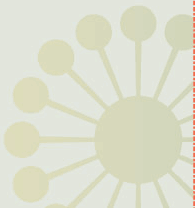WHEN DEATH SHALL COME Whether you like it or not, dying is hard work. While every death is unique, every individual must wrestle with that one constant in the universe—change, especially the transition that comes at the end of this life. There is, of course, the physical process of dying, the diminishing of the life force, whether it be sudden and traumatic or the slow slipping into blackness. One must often deal with pain, the ebb and flow of life consciousness, the final farewells of family and friends. But there are also the fear and the anxiety of transition. While we may fear that we will leave uncompleted the many projects and dreams of a lifetime, or the separation from those we love, or that we may not have fulfilled our reason for being, there are also the anxiety and dread that the end of life is precisely that. In his meditation on human mortality, Julian Barnes in his book, Nothing To Be Frightened Of, raises the specter of our primal fear—self-annihilation. The fear that we will cease to exist, to experience, to remember, to feel, to love and be loved, gnaws at the souls of many. For this reason, most humans “rage against the dying of the light,” or say with Hemingway’s lieutenant at the bedside of the woman he loves who is dying, “Life’s just a dirty trick.” There are some who go kicking and screaming into the unknown. When Ethan Allen, one of America’s founding fathers, was dying, a clergyman was summoned to his bedside and told him, "General, I fear the angels are waiting for you," only to hear Allen’s thundering voice respond: "Waiting, are they? Waiting, are they? Well, goddamn 'em, let 'em wait." On the other hand, there are those who go “gently into that good night,” “like one who wraps the drapery of his couch about him, and lies down to pleasant dreams.” As one lives, so one dies. There is so much in this life that points beyond this life. Whether it is the ancient myths of bygone cultures or the enduring traditions of living faiths, the belief in survival is extensive. The visions of those on the threshold of death, communications from those who live in another dimension of being, cases suggesting reincarnation, and other evidence of postmortem existence assure us that we will survive and transcend death. It is for each individual to determine whether it is because we cannot accept the idea of our own nonexistence, or because we have faith that the evidence is sufficient for our continuation. USA Today recently (March 17, 2009) said in an article that “dying cancer patients who rely strongly on their religious faith to cope with their illness were three times more likely than others to receive intensive, invasive medical procedures even in their last week of life, according to a study in today's Journal of the American Medical Association.” One can perhaps understand Ethan Allen, but why would a person of faith want to keep the angels waiting? Sherwin B. Nuland, (How We Die: Reflections on Life’s Final Chapter), says “few people faced with a diagnosis of potentially remedial malignant disease should be willing to give up the struggle if there is any reasonable chance that some promising form of treatment is available to lessen the ravages of the disease or cure it. To do anything less is not stoicism, but folly.” However, there is also the nobility of sacrifice, when persons who care more for their loved ones than for themselves, will forego the expensive medical procedures that may bring financial ruin to their families, or who do not want to see others suffer vicariously through their own pain. Faith is trusting in a God who is with us and within us as we endure tragedy, not vain expectation from believing that God will help us avoid tragedy. Our body, from its cellular foundations to the complexity of the entire organism, has an innate program of self-preservation. Some cells may die; some may regenerate as biological immortality moves closer from the realm of fantasy to that of possibility. Nevertheless, to desire death may be to contradict the intention of the Creator, but to accept death, when it shall come, is to be at peace in knowing that the universe is unfolding as it should and that there is so much more beyond. Dr. Harry L. Serio |
|
